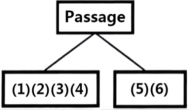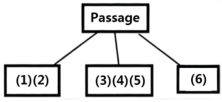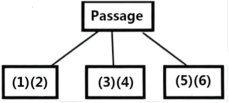1 . Like most of us, I try to be mindful of food that goes to waste. The arugula (芝麻菜)was to make a nice green salad, rounding out a roast chicken dinner. But I ended up working late. Then friends called with a dinner invitation. I stuck the chicken in the freezer. But as days passed, the arugula went bad. Even worse, I had unthinkingly bought way too much; I could have made six salads with what I threw out.
In a world where nearly 800 million people a year go hungry, “food waste goes against the moral grain,” as Elizabeth Royte writes in this month’s cover story. It’s jaw-dropping how much perfectly good food is thrown away — from “ugly” (but quite eatable) vegetables rejected by grocers to large amounts of uneaten dishes thrown into restaurant garbage cans.
Producing food that no one eats wastes the water, fuel, and other resources used to grow it. That makes food waste an environmental problem. In fact, Royte writes, “if food waste were a country, it would be the third largest producer of greenhouse gases in the world.”
If that’s hard to understand, let’s keep it as simple as the arugula at the back of my refrigerator. Mike Curtin sees my arugula story all the time — but for him, it’s more like 12 bones of donated strawberries nearing their last days. Curtin is CEO of DC Central Kitchen in Washington, D.C., which recovers food and turns it into healthy meals. Last year it recovered more than 807,500 pounds of food by taking donations and collecting blemished (有瑕疵的) produce that otherwise would have rotted in fields. And the strawberries? Volunteers will wash, cut, and freeze or dry them for use in meals down the road.
Such methods seem obvious, yet so often we just don’t think. “Everyone can play a part in reducing waste, whether by not purchasing more food than necessary in your weekly shopping or by asking restaurants to not include the side dish you won’t eat,” Curtin says.
What does Curtin’s company do?| A.It produces kitchen equipment. |
| B.It turns rotten arugula into clean fuel. |
| C.It helps local farmers grow fruits. |
| D.It makes meals out of unwanted food. |
2 . 听下面一段独白,回答以下小题。
1. At what age do most people begin smoking according to the talk?| A.About 15. | B.About 25. | C.About 44. |
| A.Make people refuse the advertisements on cigarettes. |
| B.Make it easier to sell cigarettes. |
| C.Make fewer people begin using cigarettes. |
| A.Thoughts on smoking have changed. |
| B.Recent studies are still being examined. |
| C.Young people are more likely to smoke. |
1. How many pieces of news were mentioned in this talk?
| A.Three. | B.Four. | C.Five. |
| A.To control birth rate. |
| B.To save money. |
| C.To make room for new buildings. |
| A.They are asking for it. |
| B.It’s a plan organized by the litter pickers. |
| C.To encourage people to clean up rubbish off themselves. |
| A.Liverpool was beaten. | B.Barcelona was beaten. | C.AC Milan was beaten. |
| A.Leaving his home. |
| B.Parting from his son. |
| C.Taking early retirement. |
Teenage life is full of adventures and challenges. Doing voluntary work is popular among some teenagers. And extra-curricular activities
1. What is the woman trying to talk about?
| A.Delicious food. | B.Fancy phones. | C.Social problems. |
| A.Negative. | B.Uninterested. | C.Considerate. |
7 . Optimism (乐观) is probably not a surprise that optimistic thinkers tend to be happier than pessimistic thinkers.
Optimists live longer.
Optimistic thinkers have lower rates of high blood pressure, heart disease, and even risk of cancer, as well as lower rates of mortality in general. These health factors may be influenced by optimists’ focus on taking care of themselves.
Optimists are more successful.
Just as optimists tend to be more resilient (有复原力的) outside of the workplace, they are also resilient on the job. Even if their bosses don’t recognize that they’re doing a good job, optimists are able to bounce back and keep performing well. People who are more optimistic also seem to have better job security than less optimistic workers.
People with higher levels of subjective well-being — a mindset that can include optimism — have stronger immune systems and even experience faster wound healing than others with lower levels of well-being. People with positive experiences lowered their rates of depression, physical symptoms, and sleep complaints.
| A.Optimists take fewer sick days. |
| B.Optimists pick themselves up faster. |
| C.But there are other benefits to being optimist. |
| D.They are more likely to live to age 85 or older. |
| E.Optimists are more likely to take steps to cope with it. |
| F.This improved security can even lead to increased optimism. |
| G.Optimists tend to exercise more, sleep better and eat healthier. |
8 . A recent report from the United Nations group UNESCO warns that using technology in classes may not help as much as many people believe. The report suggests that technology should be used less in schools, and that smartphones should be banned from classrooms.
The goal of the new report was to improve how technology is used in education. It says that technology can be helpful, but it shouldn’t be the focus. “Too much attention on technology in education usually comes at a high cost,” the report says.
These days, it’s common for students to use computers or tablets (平板电脑). In many places, it’s normal for students to look up information on the internet rather than using books. UNESCO claims that technology changes so fast that it’s hard to study how it really affects students.
The new report says that many of the studies show that technology helps students come from rich countries. As classes moved online during the Covid-19 pandemic, the use of technology in education grew even more quickly. Many students were forced to study at home, using video calls to communicate with their teachers. But the report points out that around 500 million students were unable to take part in online classes. That’s one example of what UNESCO says is a larger problem — that the advantages of technology aren’t evenly shared. People and countries with less money are often left out.
UNESCO admits that technology can help in many ways. It can allow students to learn in ways that are more interesting; it can also help teachers explain difficult ideas; it can also help students who have special needs. But UNESCO says technology can also be very perturbing. One study showed that when students use phones in class, it can interfere with their learning. Even so, less than 25% of the world’s countries ban phones in schools.
The report suggests that the best way to learn is still to work closely with teachers. Working with other classmates also helps students learn. UNESCO says that most schools should spend more money on things like books, classrooms, and teachers.
1. Why does the report suggest using technology less in schools?| A.It changes too fast for students to adapt. |
| B.Most countries cannot afford to invest in it. |
| C.It makes no difference to improving education. |
| D.It may not be as effective as initially thought. |
| A.The pandemic has affected most countries. |
| B.Fewer students keep discipline in online classes. |
| C.High-tech devices are unevenly distributed. |
| D.Teachers’ training in technology use is not enough. |
| A.Distracting. | B.Confusing. | C.Interesting. | D.Frightening. |
| A.Explore innovative teaching methods. |
| B.Increase the expense on teaching staff. |
| C.Stress the importance of quality education. |
| D.Update technology and digital resources in time. |
9 . Feeling controlled by your to-do list can certainly make you unhappy, but new research suggests that more free time might not be the magic elixir (灵丹妙药) many of us dream it could be.
In a new study shown last week, researchers analyzed data from two major surveys about how Americans spend their time. Together, the surveys included more than 35,000 respondents (受访者). The researchers found that people with more free time generally had higher levels of subjective well-being—but only up to a point.
People who had up to two hours of free time a day generally reported they felt better than those who’d had less time. But people who had five or more hours of free time a day generally said they felt worse.
So finally the free-time “sweet spot” might be two to three hours per day, the findings suggest. “While too little time is bad, having more time is not always better,” said Marissa Sharif, lead author of the paper.
Of course, most people know that being too busy can cause stress. But the new study is not the first to question whether more free time will actually make people as happy as they believe it will. Part of “sweet spot” has to do with how people spend the free time. Researchers conducted several smaller online experiments. In one they asked participants to imagine having 3.5 to 7 free hours per day. They were asked to imagine spending that time doing “productive” things (like exercising) or to imagine doing “unproductive” activities (like watching TV).
Study participants believed their well-being would suffer if they had a lot of free time during the day—but only if they used it unproductively. Though that experiment was hypothetical (假设的), which is one limitation of the new research, it’s certainly in line with other research showing that being in a state of “flow” can be good for people’s mental health.
In other words, how people use their free time matters, Sharif said. Of course, what feels “productive” is up to you.
1. What can we know about the new study?| A.It included many American respondents. | B.It surveyed people from different countries. |
| C.It found that more spare time was better. | D.It’s the first to question the importance of free-time. |
| A.Less than 2 hours. | B.About 3.5 hours. | C.About 2 to 3 hours. | D.More than 7 hours. |
| A.The experiment included unproductive activities. |
| B.The experiment wasn’t in line with other researches. |
| C.The experiment didn’t include enough participants. |
| D.The experiment was not based on adequate evidence. |
| A.Being productive is an important matter. |
| B.The way people spend their spare time makes a difference. |
| C.Being in a state of “free” can be good for people’s mental health. |
| D.More free time will actually make people as happy as they believe. |
10 . Many parents worry that showing negative emotions in front of their children will cause them to suffer. For example, children may end up thinking it’s their fault or simply “catch” the emotion. Indeed, this worry has a sound basis — the phenomenon of “emotional contagion” (情绪感染) is real, and one recent study found that parents can transfer their fear of going to the dentist, for example, to their children.
On the other hand, there is the natural idea that we should “be real” with our children, and that they will benefit from watching a parent who struggles and eventually deals with their negative emotions like any other human being.
There are three concepts to consider when it comes to emotional display in front of children: suppression (压抑),“uncontained” expression, and talking about emotions. Suppression of emotion is when you hide the outward signs of an emotion. Unfortunately, it doesn’t work very well — the act of suppressing your emotion actually increases your blood pressure. Observers can pick up on your distress despite your efforts to hide it, making them feel stressed. The recent research has also found that when parents feel negative emotions and keep them from their children, they experience lower relationship quality and decreased responsiveness to their child’s needs.
On the other hand, “uncontained” expression of anger and sadness by the parent is also not salutary for the child. Uncontained means high intensity emotion, with no attempts to regulate or take ownership of it. Shouting, smashing (摔) things and blaming someone else for “making you angry” are all example of this .
So, what is the middle ground? That would be talking about emotion taking ownership of them and showing your child that you are trying to deal with them. Classic research found that six-year-old kids had better emotional understanding and perspective-taking skills if their mothers had talked to them about their emotions at the age of three. In fact, the more the mothers had talked, the better the outcome would be.
So next time you feel sad, angry or frustrated and your child is watching you expressing emotion, do explain what’s going on in terms they can understand.
What’s the structure of the text?A. | B. |
C. | D. |



